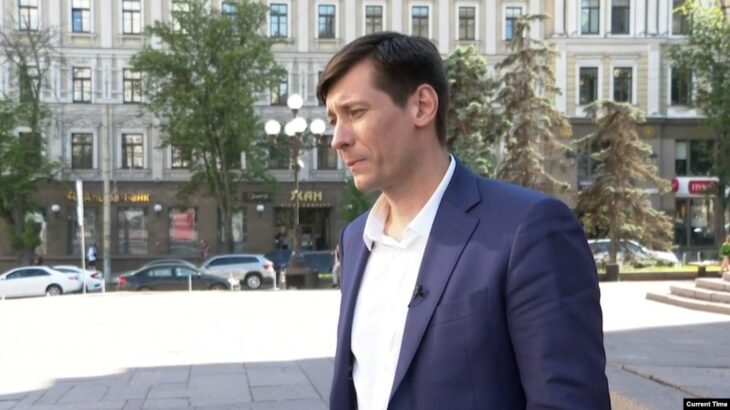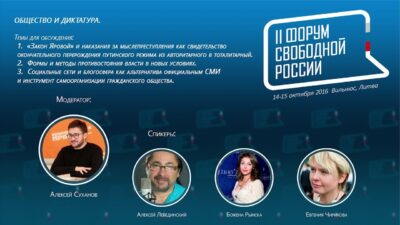
Russian opposition politician and former State Duma Deputy Dmitry Gudkov says that he decided to leave Russia after he was warned that his relatives and associates could face arrest if he remained.
In an interview with Current Time from Kyiv on June 7, Gudkov said he had been given “a window of opportunity” to leave Russia before being arrested. He said he had been told “the Gudkov matter will be settled by any means necessary.”
“Permission has been given from the very top,” he said his sources informed him.
Gudkov declined to say who had warned him, except to say he had received the information from multiple sources within Russia’s security agencies.
Gudkov left Russia for Ukraine on June 6 and said he plans to travel on to Bulgaria, where his father, former State Duma Deputy Gennady Gudkov, and his mother live.
He said his departure should not be considered “emigration.”
“It is a temporary, involuntary departure, a temporary withdrawal in order to regroup and move on,” he said. “I plan to continue my political activity.”
Gudkov’s departure came after he was detained on June 1 following a massive police operation that included searches of at least 10 locations and involved more than 100 law enforcement officers.
He was released from custody on June 3, although he remained under investigation for purportedly “causing material harm through fraud” for an allegedly unpaid debt for rented property dating back to 2015. His aunt was also detained in the investigation and could face charges in the case.
Gudkov has said the case against him was fabricated to prevent him from running in the State Duma elections that must be held before September 19.
Gudkov also told Current Time, a Russian-language network headed by RFE/RL in cooperation with VOA, that he’d decided he could more effectively achieve his goals of promoting democratic reform in Russia from abroad than from prison.
The politician compared his decision with that of imprisoned opposition figure Aleksei Navalny, who was also warned before he returned to Russia from Germany in January that he would be arrested.
“There are different kinds of people with different abilities and different habits,” he said. “Aleksei apparently thought that, for him, the most effective step would be to turn himself into a sort of symbol. Now he is not just an opposition figure but rather the symbol of the protest movement.”
“I think everyone needs to make their own decision independently,” Gudkov said. “I have never criticized anyone who left. And I will never judge those who decided to stay even though it meant suffering for those close to them.”



